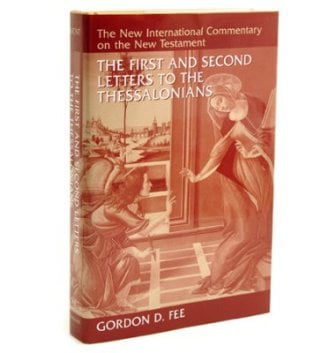{July 26, 2017} 7:48 AM Pastors = Elders = Overseers. Then why should we have a church polity with “pastors” on the one hand and lay “elders” on the other? We are told it is because pastors are paid while elders are not. This seems like a distinction without a Scriptural difference. Church, ordination, titles — a biblical understanding of these themes is one of the most critical issues facing the worldwide body of Christ in our day. Even among evangelicals with their professed high view of Scripture, significant confusion remains. This is what makes Alexander Strauch’s Biblical Eldership so timely and relevant. Its appeal is for Christians of all traditions to get back to the “basics,” by which he means the word of God. He asks important questions. “What is the church?” “Who are called to its priesthood?” “What is the real significance of ordination?” Strauch is convinced that only when we recover the supremacy of Christ and His lordship over our thinking in these areas can local churches function as New Testament churches. Speaking personally, I’ve found that when our ecclesiology gets into trouble, it’s generally because we’ve tolerated distortions in our Christology. An example. Jesus alone is our high priest. Hence the word “priest” is never used in the New Testament for any official church “minister.” It’s the total community of believers that is the “royal priesthood.” Just as Christ offered Himself in service to the Father, so Christians offer themselves and their whole being to God as living sacrifices. Each and every Christian, as a “priest,” presents his or her entire life as a sacrifice to God. This is the priesthood of all believers, not just the “clergy.” Even a Roman Catholic theologian like Hans Küng recognized this:
The fundamental error of ecclesiologies … was that they failed to realize that all who hold office are primarily (both temporally and factually speaking) not dignitaries but believers, members of the fellowship of believers; and that compared with this fundamental Christian fact any office they may hold is of secondary importance if not tertiary importance (The Church, p. 465).
Küng further notes that, in the New Testament, words common in secular Greek for religious authorities are consistently avoided, including words implying hierarchy, primacy, rank, and power. The classic exception is the Diotrephes of 3 John, who is hardly being held up as a positive example. Instead, argues Küng, the language of the New Testament is one of horizontal relationships. Phil. 1:1 suggests that formal leadership in the church is placed within the congregation and not above it. No ministerial office represents status or rank in a social or political sense. The leaders’ influence is measured, not by their titles, but by their Christlikeness and the extent to which they allow the Holy Spirit to work through them for the good of others and the glory of God. In essence, then, the New Testament church is a brotherhood of believer-priests, centered not in the bishop but in Christ.
Ministry, not status, is what the church is about. The Protestant Reformation replaced the altar with the pulpit and the priest with the preacher. It was left to the Anabaptists to develop the concept of the church as a fellowship of active believers, a Christian brotherhood in which the ideal of the kingdom of God would be realized. I wonder if the title “senior pastor” is even biblical. It creates a leader-centric paradigm in which discipleship is staff-driven. It encourages a consumer mentality in which responsibility for “ministry” is shifted from the so-called laity to the pastors. Intentional or not, the title communicates that the head of the church is not Christ but a mere man. Ironically, the one man in the New Testament who could possibly have claimed to be the “senior” or “lead” pastor is willing to recede into the group. Why does the apostle Peter, in addressing elders, refer to himself simply as a “fellow elder” and only Christ as the Chief Shepherd (Senior Pastor)? Could it be that he’s widening the definition of what counts? I am suggesting this: titles matter. Whose name is on the marquee matters. The church is not a collection of supernovas but a collective light that shines on the Son.
(Taken from my forthcoming book Godworld: Enter at Your Own Risk.)
(From Dave Black Online. Used by permission.)


